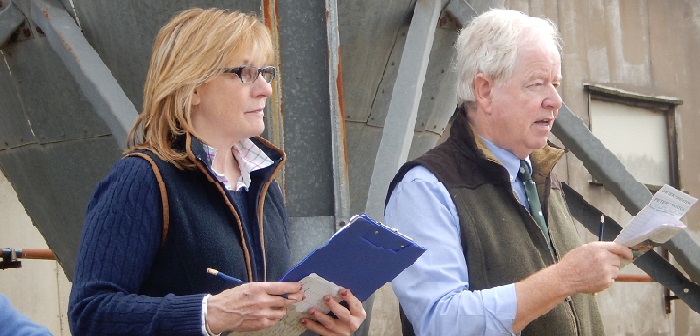Although the SPP edged down by a gnat’s crochet, losing 0.03p to stand at 146.8p/kg, European mainland prices are painting a somewhat brighter picture.
The influential German producer price, following on from last week’s 3 Cent rise, has risen a further 7 Cent, meaning that this index price has risen by 10 Cents over 2 weeks. But a word of caution as it still only stands at 1.4 EUR, which in Sterling terms is circa 124p/kg and well below UK levels.
Hopefully UK weekly contribution prices should be pulling out of their recent downward slide, with some of the big players standing on, but two disappointingly still shedding a penny (you know who you are), which hopefully will be repaid with more to spare next week?
Demand for spot bacon remains quiet, but will have lifted to some extent following the better news from Europe with spot buyers still cautious – but at least most bids have been on the topside of 130p/kg.
Cull sow prices have also improved, reflecting better European demand for pigmeat and a firmer Euro, which traded on Friday up 1% at 88.72p.
As a result, UK sow values rose by an average of 4p/kg with most now quoted in the 64p – 67p/kg bracket.
Weaner values also rose with the latest AHDB 30kg ex farm average improving to the tune of £1.52/head to £53.22/head and 7kg pigs also up by £0.67/head to £37.32/head.
However, reports of significant increases in UK piglet mortality coupled with poor conception rates may fuel something of a shortage in the months ahead, as well as knocking a hole in producers’ bank balances. It is worth remembering that four week-weaning during the cold winter months is a particulary hard system and higher levels of TLC may need to apply.
This situation has not been helped by the much higher rainfall levels seen during the December/January period, which has provided outdoor producers with yet another challenge.
Global wheat prices have been under pressure reflecting bearish trends, with London feed wheat quotes for March easing to £135.50/t and July to £139.90/t. UK spot wheat has ended the week little changed at an average of £135.50/t.
And finally, a spotlight continues to remain on the threat to our industry posed by African Swine Fever and the current outbreak has already caused the deaths of more than one million pigs globally.
Until an effective vaccine has been developed it will be very difficult to limit the spread of the disease, often linked to wild boar movements across wooded areas of Eastern Europe with reports of an increase in the number of cases in Poland.
As this is one catastrophe we could certainly do without, biosecurity remains a top priority across the whole of the country to help minimise the spread of the disease if it crosses the Channel as well as more point of entry warning posters and the like to remind everyone of the scourge of ASF.




